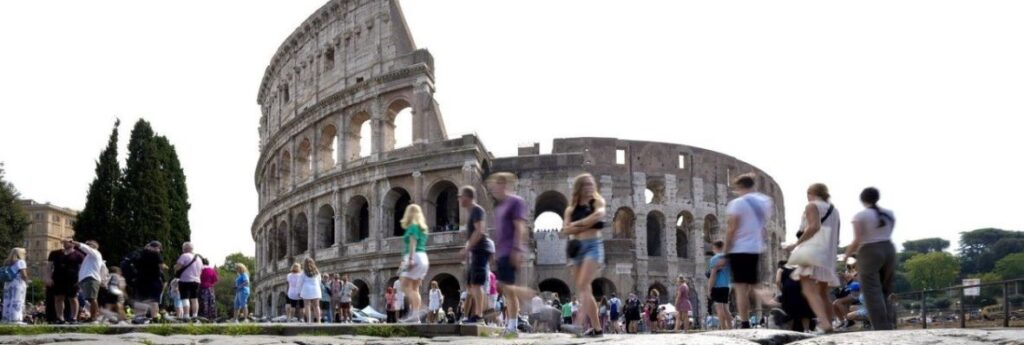The ancient Roman Colosseum will be the venue of gladiator fights – albeit staged – for the first time in two millennia under a $1.5-million sponsorship deal with Airbnb that aims to promote “a more conscious tourism.” Critics, however, say the plan is a disgrace that simply eats away at the essence of “the Eternal City.”
Under the deal announced by Airbnb and the Colosseum, the sponsorship by the short-term rental giant will cover the renewal of an educational program inside the ancient Roman amphitheater covering the history of the structure and gladiators.
Eight of the platform’s users and their plus-ones will be able to participate in faux gladiator fights after the Colosseum’s closing time on May 7-8, taking the same underground route used by gladiators in ancient Rome to reach the arena. People can apply for the experience on Nov. 27 at no cost, and the “gladiators” will be chosen by lottery.
The superintendent of the Colosseum Archaeological Park, Alfonsina Russo, said that the deal is in conjunction with the release of Ridley Scott’s new film “Gladiators II,” which opened in Italy last week.
Russo characterized the sponsorship arrangement as one of the many such deals to help finance projects at the park.
The Italian fashion brand Tod’s, for example, has funded a multimillion renovation of the Roman monument, including a cleaning, replacing the locking system of arches with new gates and redoing the subterranean areas.
But some visitors to the monument, as well as housing activists, were skeptical about the value of the arrangement, citing ongoing controversies in many cities over the role of short-term rental platforms in fueling overtourism and limiting affordable housing for residents and students.
Alberto Campailla, the coordinator of the Nonna Roma nonprofit organization that focuses on housing and food for the poor, called the campaign with Airbnb “a disgrace,” and a form of “touristification.”
Airbnb and other platforms offering short-term rentals “are literally driving people out of not only the city centre, but also the outskirts and suburban neighbourhoods,” Campailla said.
“It seems to me that the purpose of the Colosseum today is to be a tourist attraction, but not to create an amusement park within it,” said Jaime Montero, a tourist visiting from Madrid. “In the end, tourism eats the essence of the cities, here in Rome, as in other capitals.”
If this article was shared with you by a friend or colleague, you may enjoy receiving your own copy of Travel Industry Today with the latest travel news and reviews each weekday morning. It’s absolutely free – just click HERE.

